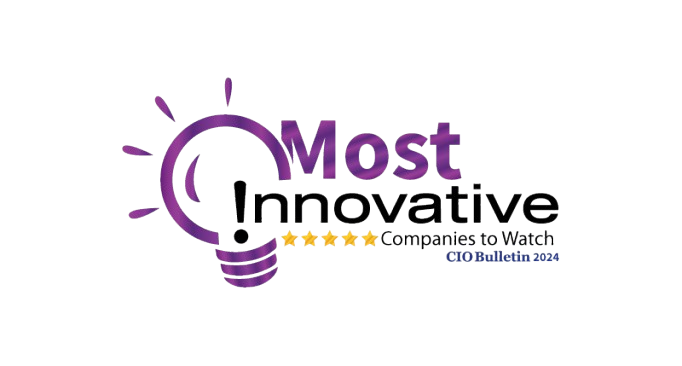HubSpot And Salesforce Integration
August 26, 2022
HubSpot and Salesforce are two of the biggest names in the global CRM market. Both platforms help businesses in managing their customer database and provide personalized services to their customers. They help you streamline your sales (Sales Cloud and Sales Hub), marketing (Marketing Cloud and Marketing Hub), and customer service (Service Cloud and Service Hub) processes as per your business objectives and customer requirements.
However, people often pit HubSpot and Salesforce against each other and see the two platforms as competitors. Businesses are often faced with the option of choosing between the two solutions for implementing CRM. If are facing the same issue, it is important to consider the third alternative – integrating HubSpot and Salesforce.
Both Salesforce and HubSpot come with their own sets of advanced tools and features. Instead of compromising one for the other, you can always choose to integrate HubSpot and Salesforce to enhance your productivity and leverage your business processes.
Before diving deeper into the integration, let us briefly understand the two platforms.
What Is HubSpot?
HubSpot is a CRM platform that allows businesses to create targeted inbound marketing campaigns, manage sales processes, and provide personalized support to their customers. From lead management and SEO to creating landing pages and undertaking content management, HubSpot helps you streamline a range of different marketing and sales processes.
The advanced and automated tools offered by HubSpot help you improve your campaigns, track the buying journeys of your contacts and be there for your customers at every stage until the deals are closed.
What Is Salesforce?
Salesforce is arguably the biggest and oldest name in the CRM market. More than two decades old, Salesforce helps you record, store, analyze, and share your customer records on a centralized platform. From lead management and the creation of marketing campaigns to generating personalized quotes and managing finances, Salesforce offers a wide range of features to its users.
Salesforce is known for its versatility and automation. The CRM platform can be used by organizations operating at all scales and belonging to almost any industry across the world.
The Importance Of HubSpot And Salesforce Integration
When it comes to the core of HubSpot and Salesforce, the essence of the services offered by both platforms is the same. They both help businesses cater to the prospects from their very first touchpoint until the purchase is made (and even beyond sales). By combining the features of HubSpot and Salesforce, you can increase the profitability of your venture and dominate the market you operate in.
As a lot of features offered by both platforms are unique while heading in the same direction, the integration would help you ensure seamless collaboration between multiple departments, bridging gaps between marketing and sales, and deploying the right resources to obtain the right results.
The best way to integrate Salesforce and HubSpot is to clearly define what you want from each of the platforms. For example, you can use HubSpot for building a website for your business and creating an inbound marketing campaign for it while using Salesforce for managing leads and driving sales. This helps you allocate your resources well and prevents both platforms from causing friction between each other.
If utilized well, an integration between HubSpot and Salesforce would help you enhance your business productivity to a great extent.
Benefits Of Integrating HubSpot And Salesforce
Before you go ahead with combining the forces, here are some of the most important benefits of integrating HubSpot and Salesforce:
Streamlined Lead Management
In 2022, you cannot afford to have any delays in responding to your leads’ queries and nurturing them well. Integrating HubSpot with Salesforce helps you enhance lead management and ensure that your leads are nurtured in the best way possible.
For example, if your sales reps come across leads that meet the inclusion criteria in HubSpot, they would automatically be synced with Salesforce, allowing your reps to score them and follow them up using advanced lead management tools. The combination of two platforms ensures that you don’t miss out on any leads and your sales reps give their best in making conversions.
Narrowing The Gap Between Sales And Marketing
While HubSpot is particularly known for its marketing solutions, Salesforce excels in sales management. By integrating the two platforms, you can narrow the gap between the two departments and make them complement each other.
In essence, no marketing or sales activity exists in complete isolation. When your marketing team runs a campaign and acquires a lead, it is eventually transferred to the sales department for being nurtured and converted. On the basis of the conversions made, the marketing team would rework its campaigns and refine its processes to improve the rate of conversions in the future.
The integration between HubSpot and Salesforce helps you undertake all your marketing and sales processes smoothly, allowing both departments to make the most of the tools offered to them.
Understanding Your Customers Better
The ideal mix of Salesforce and HubSpot helps you understand the prospects and customers you cater to, allowing you to reach out to them in better ways. Your Salesforce and HubSpot records can be used for keeping track of the behaviors of your customers on multiple platforms and their engagement with your business.
If you use Salesforce for tracking sales and HubSpot for creating marketing campaigns, the products/services bought by your customers and the details regarding the same dictate the marketing campaigns being created. Further, the manner in which your customers interact with your marketing messages helps you understand their needs, preferences, likes, and dislikes.
All this data can be used for preparing holistic profiles of all your customers and basing all your business processes on the same. This way, you can improve your relationships with your customers and earn their loyalty.
Boosting Sales
Irrespective of the industry you belong to, you need to generate enough revenue to sustain yourself in the market. Creating innovative and targeted marketing campaigns would make no sense if you are not able to boost your sales and get a decent ROI.
The HubSpot Salesforce integration provides you with tools that help you enhance your sales processes. When you are completely aware of what your target audience is looking for and reach out to the right prospects at the right time, the chances of your deals getting closed increase substantially.
From automatically assigning contacts from one platform to the campaign created on another to making use of modern technologies like AI and machine learning, the integration helps increase your frequency of closing sales deals, giving you the revenue you have been willing to earn.
Syncing Your Pipelines
One of the most sought-after benefits of the HubSpot Salesforce integration is that it allows you to sync your pipelines across the two platforms. With a single unified pipeline, your marketing team can keep track of how your sales reps are nurturing the leads, while your sales team can see how your marketing reps are engaging with the leads before they get them.
The Final Word
Integrating HubSpot and Salesforce results in the perfect harmony between a number of business processes as you combine the out-of-the-box features offered by both platforms. An effective HubSpot Salesforce integration helps you optimize your database and create your niche in the market.
Featured Resources
Check Our Latest Resources

Proven ROI has been recognized as one of the Most Innovative Companies to Watch 2024 by CIO Bulletin—a testament to the company’s forward-thinking approach to CRM investments and strategic partnerships. By working closely with leading CRM platforms like HubSpot, Proven ROI is revolutionizing how businesses manage customer relationships, scale their operations, and drive growth.



